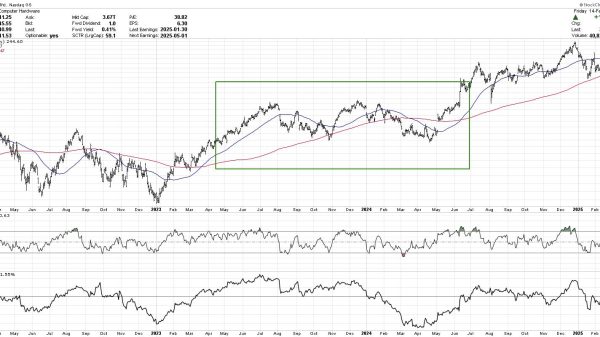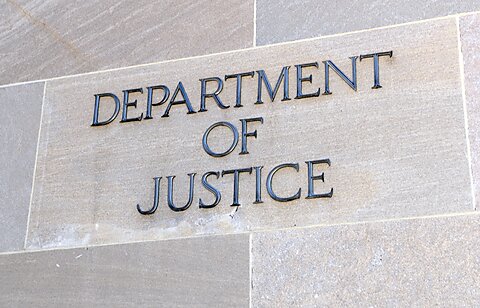
The US Department of Justice (DOJ) is unique among federal agencies in the extent to which its core mission is to safeguard the integrity of the law, and virtually the definition of a crisis event there is a mass resignation or firing of senior officials occasioned by their belief that they are being ordered to act in disregard of what the law requires.
Richard Nixon’s “Saturday Night Massacre,” which caused public opinion to turn sharply against him in the Watergate affair, fell into this category. In January 2021, it was the threat of mass resignations by senior staff that stayed Donald Trump’s hand from installing an acting attorney general who would declare, in line with Trump’s wishes but against the findings of the department’s professionals, that the results of the election were suspect.
In Trump’s second administration, it has taken only three-and-a-half weeks to bring the DOJ to a mass resignation event. Yesterday, as the New York Times reported, Danielle R. Sassoon, interim US attorney for Manhattan, “quit after the Justice Department told her to withdraw corruption charges against Mayor Eric Adams.… Ms. Sassoon, 38, joined the Southern District in 2016. A graduate of Harvard College and Yale Law School, she clerked for Justice Antonin Scalia on the Supreme Court and is a member of the Federalist Society, the conservative legal group.” Earlier, Sassoon had clerked for noted conservative judge J. Harvie Wilkinson of the Fourth Circuit.
It was a high-visibility resignation. Handling a large volume of complex cases and high-level white-collar crime investigations, the Southern District of New York is regarded as a premier US attorney’s office. Sassoon, who had been named interim chief by the incoming administration itself, most recently co-led the district’s appeals unit and is perhaps best known for successfully prosecuting crypto founder Sam Bankman-Fried.
The background is the incoming administration’s decision to drop bribery and corruption charges against New York City Mayor Eric Adams. The case is complex, but Andrew McCarthy of National Review, who’s anything but a reflexive critic of Trump’s legal moves, dismisses as “ridiculous” and “laughable” the department’s cover story for dropping the charges, a decision he says was instead reached on “explicitly political grounds.”
But prosecutors’ decisions to drop cases, like their decisions to bring cases, are not supposed to rest on calculations as to what might politically help their elected overseers. As Sassoon points out in a parenthetical cited (top of p. 8) in her resignation letter, the Arizona Supreme Court “disbarred the elected chief prosecutor of Maricopa County, Arizona, and his deputy, in part, for misusing their power to advance the chief prosecutor’s partisan political interests.” (I wrote about that case.)
Sassoon’s letter (NYT annotated version) is an extraordinary and finely crafted document well worth reading in its entirety. It makes a case for why, under the Department’s own rulebook, she was neither authorized nor permitted to participate in the dropping of charges. Footnote 1 in particular is quietly devastating. On page six she notes that the judge in the case may not, in fact, approve the dismissal, which would in her view be “to acquiesce in using the criminal process to control the behavior of a political figure.”

Within a day Sassoon had been joined in resignation by five senior officials at the Justice Department’s headquarters in Washington, including the acting chief of the criminal division, the acting chief of the public integrity section, which handles bribery and other misconduct charges against public officials, and three other senior lawyers in the public integrity section. The resignation letter from AUSA Hagan Scotten, a Bronze Star recipient and Kavanaugh-Roberts clerk, is particularly pungent: “I expect you will eventually find someone who is enough of a fool, or enough of a coward, to file your motion. But it was never going to be me.”
In response to Sassoon, Deputy Attorney General Emil Bove fired off a response that is quite a document in itself. It accuses her of insubordination and vows to investigate both her and other lawyers who declined to take part in the dropping of charges against Adams. In the second paragraph, it asserts, “You lost sight of the oath that you took when you started at the Department of Justice by suggesting that you retain discretion to interpret the Constitution in a manner inconsistent with the policies of a democratically elected President and a Senate-confirmed Attorney General.”
There, in a nutshell, is the difference between Bove and the officials who resigned. The oath Danielle Sassoon took was to the Constitution and laws, not to President Donald Trump or his line of command, and she did not agree, nor does the oath arguably even permit her, to suspend her independent judgment so as to follow orders and take a step she believes to be not authorized by law. Her integrity, and that of the other five officials, deserves our applause.
Some readers may be inclined to pass over the matter on the grounds that it’s better to have a general presumption against prosecution or that some of the charges against Adams rest on laws that might not warrant federal as distinct from state enforcement. But once explicitly political considerations can override professional legal judgment in a prosecutor’s office, the problem is not going to be confined to decisions to drop cases; it will inevitably get into affirmative decisions to prosecute persons who would have gone free had professional legal judgment prevailed.
“In any normal administration,” notes former DOJ official Alan Rozenshtein, “the Adams scandal would lead to the immediate resignation of the Attorney General and Deputy Attorney General.” But this is one of many ways in which it looks as if Trump’s second administration is not going to be like other administrations.


























